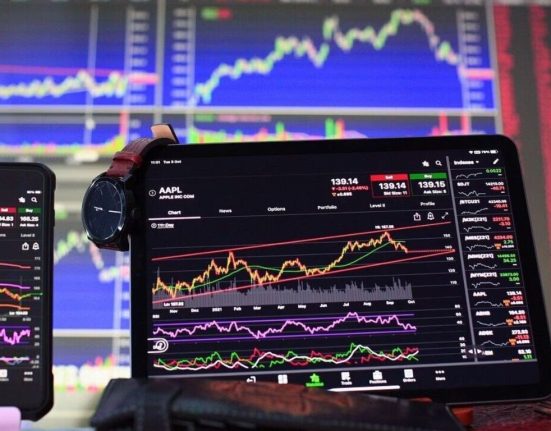The financial market has come a long way since manual trading was the norm. Today, algorithmic trading has revolutionized the way trades are executed in the financial market, making the process more efficient, faster, and less prone to human error. In this article, we’ll dive into the world of algorithmic trading and explore how you can use automated trading systems in your investment strategy.
What is Algorithmic Trading?
Algorithmic trading, also known as “algo-trading,” is a method of executing trades in the financial market using computer algorithms. These algorithms are designed to analyze vast amounts of market data and make trades based on predefined rules and strategies. This eliminates the need for manual intervention and reduces the potential for human error. Algorithmic trading systems can analyze and execute trades at lightning-fast speeds, making it a useful tool for high-frequency trading.
Advantages of Algorithmic Trading
Increased Efficiency: Algorithmic trading systems analyze vast amounts of market data and execute trades in real-time, making the process more efficient compared to manual trading.
Reduced Emotional Influence: Emotions can play a significant role in a trader’s decision-making process, leading to impulsive or inconsistent trades. Algorithmic trading eliminates the emotional aspect of trading, allowing for more objective and disciplined decision-making.
Backtesting: Algorithmic trading systems allow traders to backtest their strategies, simulating trades based on historical market data. This helps traders fine-tune their strategies and assess their potential for profitability before executing real trades.
Improved Execution Speed: Algorithmic trading systems can execute trades in milliseconds, providing traders with a significant advantage over manual trading, particularly in high-frequency trading.
Increased Consistency: Algorithmic trading systems follow a defined set of rules and strategies, reducing the potential for inconsistent or impulsive trades. This can result in a more consistent and profitable trading experience.
How to Use Automated Trading Systems in Your Investment Strategy
Define Your Investment Goals: Before you start trading, it’s crucial to define your investment goals. This will help you determine the type of strategy you need to implement and the type of algorithmic trading system that’s best for your needs.
Choose the Right Algorithmic Trading System: There are many algorithmic trading systems available, and choosing the right one can be overwhelming. Consider your investment goals and trading style when choosing a system, and look for systems with a good track record and level of customization.
Backtest Your Strategy: Backtesting your strategy is an essential step in algorithmic trading. This allows you to simulate trades based on historical market data and assess the potential profitability of your strategy before executing real trades.
Monitor Your Trades: Once you’ve started trading, it’s important to monitor your trades and assess their performance. This will allow you to make any necessary adjustments to your strategy and ensure that your algorithmic trading system is performing as expected.
Stay Up-to-date with Market Trends: The financial market is constantly evolving, and it’s important to stay up-to-date with market trends. This will help you make informed decisions and adjust your algorithmic trading strategy as needed.
Conclusion
Algorithmic trading has revolutionized the way trades are executed in the financial market, providing traders with increased efficiency, reduced emotional influence, improved execution speed, and increased consistency. By using an automated trading system, traders can make informed decisions based on historical market data and predefined rules and strategies. If you’re looking to improve










